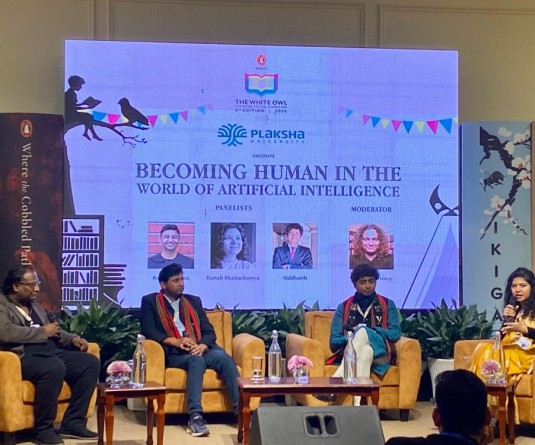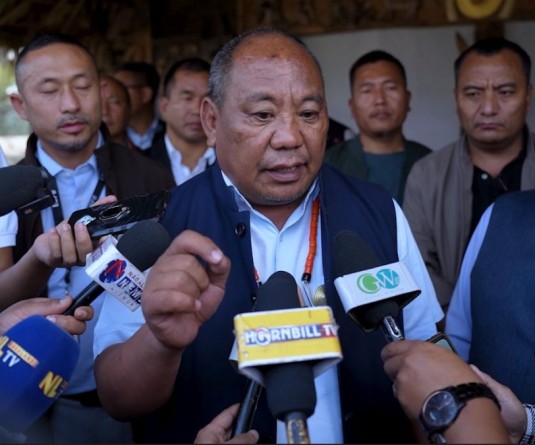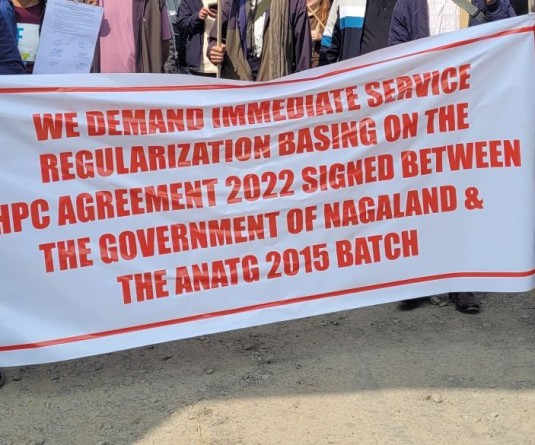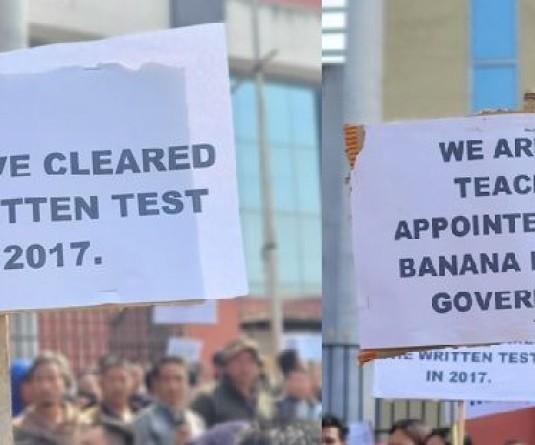Gen (Retd) Neokpao Konyak, President, GPRN/NSCN; N Kitovi Zhimomi, Ato Kilonser, GPRN.NSCN and other officials during the Naga Republic Day celebration at ‘Naga Unification Camp,’ Khehoyi.
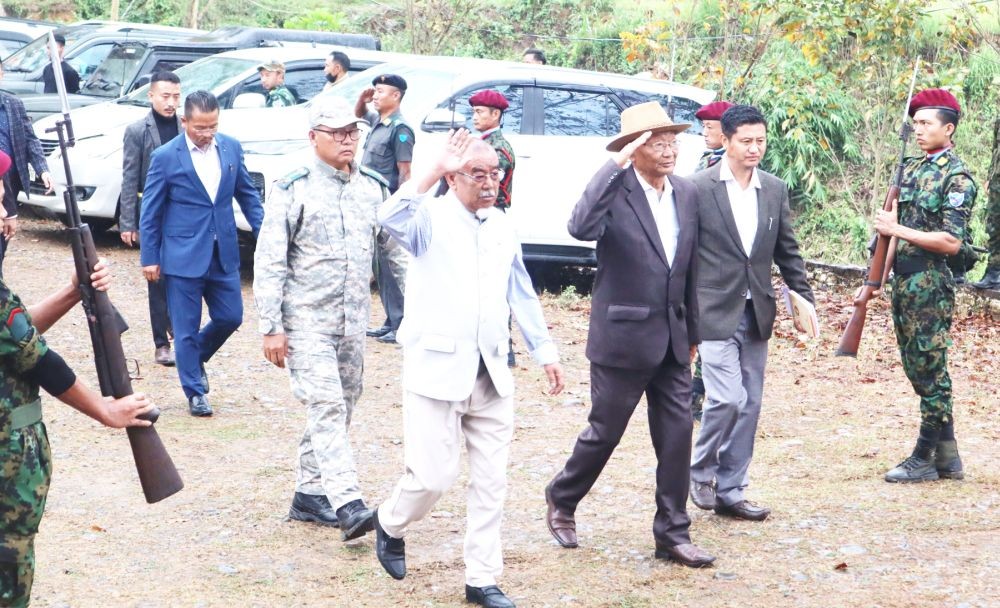
DIMAPUR, MARCH 21 (MExN): The GPRN/NSCN celebrated Naga Republic Day on March 21 at the ‘Naga Unification Camp,’ Khehoyi.
President of the GPRN/NSCN, MB Neokpao Konyak, during his address, said that the Naga Republic day is a celebration of “each citizen’s responsibility in nation building.” The power and authority, directly or indirectly, is in the hands of the Naga people, he stated. He stressed that every Naga national worker, senior or junior, have equal responsibility to take forward the idea of Naga republic as was envisaged by the Naga pioneers.
“Naga Republic day symbolizes maturity of our struggle, cohesiveness of our people, uncompromising goal and vision for our common future. We believe that Government of India (GOI), in the course of political talks with Working Committtee (WC), Naga National Political Groups (NNPGs), have clearer understanding of the Indo-Naga political problem in its correct perspective,” he added.
Konyak urged the current dispensation at Kohima, headed by Nagaland state Chief Minister, to shift focus from electoral politics to facilitating and resolving the Indo-Naga political problem. “Rampant extortion and corruption in our social, political and economic spheres is the Achilles’ heel of the Naga people. Solution to Indo-Naga problem is the only answer to the perennial burden on the people,” he stated.
He further stated that the GOI “must seriously realize the long term danger of harboring and legitimizing the mushrooming obstructive elements forming new groups.”
Konyak added that the Agreed Position and negotiated status papers are “sacred political documents widely known and accepted by all Nagas.” “I am hopeful that GOI and WC, NNPGs will not be distracted by activities of defectors and opportunists desiring to be noticed through threats and intimidations against politicians, contractors, traders and commercial outlets in Nagaland,” he added.
Meanwhile, he appealed to the apex Naga tribal bodies, the Village Headmen and elders, the Churches, the concerned Civil Societies and common citizens “to not stay silent on the primary task of resolutely standing for honorable and acceptable solution to the Indo-Naga political problem.”


